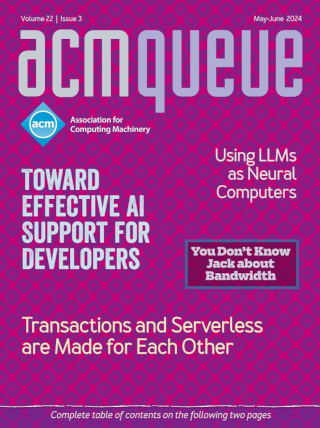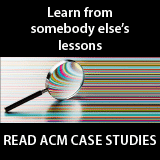
Not Your Father’s PBX?:
Integrating VoIP into the enterprise could mean the end of telecom business-as-usual.
Perhaps no piece of office equipment is more taken for granted than the common business telephone. The technology behind this basic communication device, however, is in the midst of a major transformation. Businesses are now converging their voice and data networks in order to simplify their network operations and take advantage of the new functional benefits and capabilities that a converged network delivers from greater productivity and cost savings to enhanced mobility.
A Time and a Place for Standards:
History shows how abuses of the standards process have impeded progress.
Over the next decade, we will encounter at least three major opportunities where success will hinge largely on our ability to define appropriate standards. That’s because intelligently crafted standards that surface at just the right time can do much to nurture nascent industries and encourage product development simply by creating a trusted and reliable basis for interoperability. From where I stand, the three specific areas I see as particularly promising are: (1) all telecommunications and computing capabilities that work together to facilitate collaborative work; (2) hybrid computing/home entertainment products providing for the online distribution of audio and/or video content; and (3) wireless sensor and network platforms (the sort that some hope the 802.15.4 and ZigBee Alliance standards will ultimately enable). No doubt there will be others, but for the purposes of this discussion, these should suffice.
VoIP Security: Not an Afterthought:
DDOS takes on a whole new meaning.
Voice over IP (VoIP) promises to up-end a century-old model of voice telephony by breaking the traditional monolithic service model of the public switched telephone network (PSTN) and changing the point of control and provision from the central office switch to the end user’s device. Placing intelligence at the edge, in the Internet tradition, has a number of consequences: a wider community of developers - in particular the large community of Web service developers - can work on voice applications; open interfaces and decomposable functionality facilitate multi-vendor and homegrown solutions; and open source and nonproprietary software development can facilitate innovation and experimentation.
You Don’t Know Jack About VoIP:
The Communications they are a-changin’.
Telecommunications worldwide has experienced a significant revolution over recent years. The long-held promise of network convergence is occurring at an increasing pace. This convergence of data, voice, and video using IP-based networks is delivering advanced services at lower cost across the spectrum, including residential users, business customers of varying sizes, and service providers.
VoIP: What is it Good for?:
If you think VoIP is just an IP version of telecom-as-usual, think again. A host of applications are changing the phone call as we know it.
VoIP (voice over IP) technology is a rapidly expanding field. More and more VoIP components are being developed, while existing VoIP technology is being deployed at a rapid and still increasing pace. This growth is fueled by two goals: decreasing costs and increasing revenues.
Vote Early, Vote Often:
An e-vote by any other name?
I usually shun clichés like the plague, but could not resist this oft-quoted slogan that sums up what I like to call Psephological Cynicism. Psephology is the huge and growing branch of mathematics (with frequent distractions from sociologists, psychologists, political scientists, and allied layabouts) that studies the structure and effectiveness of polling and electoral strategies. Related domains include probability and games theory, although, as well see, the subject has many far-from-playful implications. Indeed, there are depressing but valid proofs that no voting system fully guarantees “fair play.” Such non-existence theorems are common in most fields of mathematics: Gödel’s on the consistency proofs for certain arithmetical axioms, and Turing’s Halting Problem.
A Conversation with Donald Peterson:
What will the coming revolution merging voice and data communications with business applications bring?
That light we see at the end of the tunnel is the convergence of voice and data communications with business applications. As chairman and chief executive officer of Avaya, Donald Peterson is in a position to help make that convergence happen sooner rather than later. Peterson has been with Avaya since it was spun off from Lucent in 2000. Prior to that he was chief financial officer of AT&T’s Communication Services Group and Lucent.





